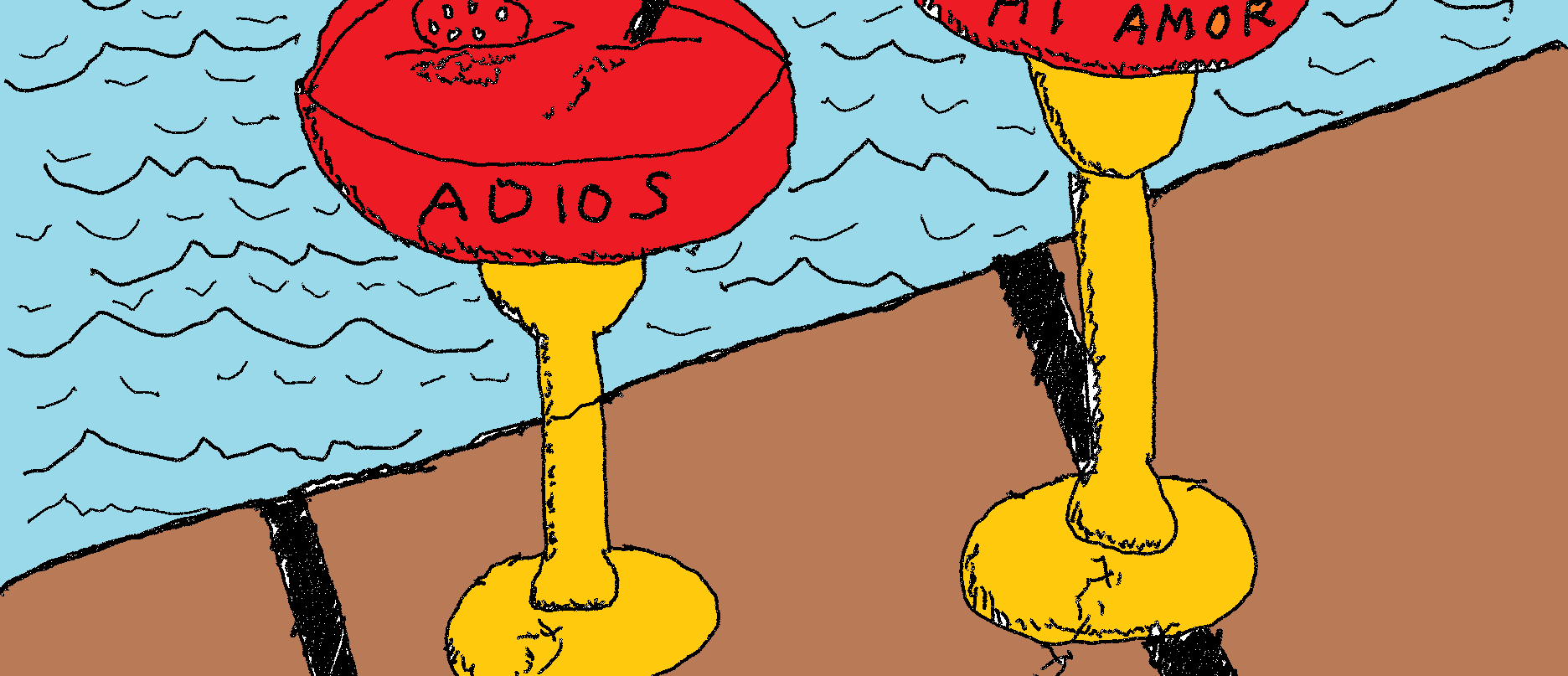
Prompt Images
You want to know if Uncle Josie made mixtapes? Sure, Uncle Josie made mixtapes, probably more than 200 altogether. You see, in addition to bootlegging whiskey using the still he’d discovered on his property a few hundred yards past his backyard swimming pool, my Uncle Josie was a highly active bootlegger of popular music.
Bootlegging wasn’t the only music business venture my Uncle Josie undertook.
Back in the early ‘70s, Uncle Josie co-founded Gringos con Stringos, which as the name implies was an all-Spanish-speaking bluegrass revival band made up of English-speaking white people. Josie played mostly banjo and some guitar. He only sang lead for the band’s slow ballads, since he had such a somber baritone. His Gringos co-founder, Eldritch T. Flames, sang on all the other songs, since his voice was such a happy-go-lucky falsetto.
The early ‘70s Front Royal nu bluegrass (nugrass) scene was intensely competitive, as you might suspect, and that’s where Josie’s bootleg mixtape operation came in: to give Gringos con Stringos a much-needed edge. To be specific, Josie was a pioneer of the illegal-bootleg-mixtape-bait-and-switch guerrilla marketing gimmick. A lot of people in my generation think guerrilla promotions were invented in the early 2000s, but Uncle Josie was doing all that stuff as far back as his Gringos con Stringos days, if not further.
Uncle Josie’s guerilla bait-and-switch bootleg mixtape tactic was to set up a blanket in the Front Royal town square during music festivals, outside the church after weddings, funerals, and baptisms, and by the Masonic temple during other large social gatherings. There he’d sell what he billed as custom compilations of the popular recording artists of the time. Uncle Josie told his customers they were buying the hits: Neil Young, Carly Simon, whatever. And that was true in a way—there’d be a couple of those tracks Josie taped off the radio on the back half of the mixtape, deep into Side 2.
Before any customer could get to those tracks, however, Uncle Josie made sure he put at least a few of the latest Gringos con Stringos songs right at the top of the tape, track 1 side 1.
What you have to remember about early ‘70s Front Royal music technology is that no one had compact cassettes or cassette players. Music aficionados had phonographs, typically, and Uncle Josie had one of the only reel-to-reel players in town. So he’d sell the customer this bogus bootleg reel-to-reel tape, and they’d lug the tape home, and then it’d hit them: “Oh no, I forgot I don’t have a reel-to-reel tape player! Oh well, I’ll just take this over to Josie’s house — he’s got a sweet sound setup. I’ll listen there, by his pool, and maybe he’ll make me a daiquiri.” Josie’s customers were often the types of people who spent hours looking for their car keys only to realize the keys had been in their front pocket the whole time.
Anyway the customer would swing by Josie’s place to use the reel-to-reel and sure enough, Uncle Josie would answer the door, set up the sound system by the pool, mount the bootleg tape to the player, and blend up some frozen daiquiris.
Then he and the customer would sit poolside, stretched out on a couple of chaise lounges, and get to listening.
Pretty early on the customer would notice that instead of Neil Young’s “Heart of Gold” or some similar playing through the speakers, it’d be Uncle Josie singing Gringos con Stringos’s “Adios Mi Amor,” or something similar (not that the customer would necessarily recognize the song per se, since Gringos con Stringos was pretty popular as far as Front Royal nugrass goes but not necessarily mainstream popular, especially not among the types of music fans who were buying Top-40 bootleg reel to reel tapes). And Uncle Josie would sit there on the chaise lounge by the pool, sipping his frozen daiquiri, staring right at the customer, and say something like “Ahhhh, I love the bridge here where it shifts to a minor seven chord.”
Of the dozens of Front Royal customers who’d bought a reel-to-reel mixtape from my Uncle Josie, not one ever had the gall to say, “Hey, Josie, you lied to me, this was supposed to be Neil Young. And instead of a falsetto Canadian voice coming out of the speaker, if my ears aren’t mistaken, this is the somberest Northwestern Virginian baritone I’ve ever heard, singing not just bluegrass but Spanish language nugrass! In a voice that sounds a little like yours, Josie! You’ve pulled a fast one!”
The reason nobody fussed in that way was simple: Josie’s customers were in a bind, having knowingly bought what they’d believed to be copyrighted material by major recording artists. They didn’t have the greatest legal-ethical ground to stand on themselves. So without fail each and every customer thanked Josie for the pleasure of letting them use his reel-to-reel tape player. And furthermore they’d tell Josie that, actually, he should hang on to the bootleg mixtape himself, and they’d just stop by again some other time to listen some more. Then they’d head back to their own homes, out the $5 or so Uncle Josie had charged for the bootleg reel-to-reel, but having avoided getting on my Uncle Josie’s bad side—a considerable benefit.
And so it was that Uncle Josie’s guerrilla bootleg switcheroo reel-to-reel scam persisted through the early 1970s.
It would probably have lasted until the early ‘80s compact cassette revolution, had Gringos con Stringos not unceremoniously disbanded following the untimely and suspicious drowning of co-founding lead singer, Eldritch T. Flames, in the wake of a frozen-daiquiri-fueled poolside argument with Uncle Josie over who should get to sing the ballads. No charges were ever pressed against Josie for either the reel-to-reel scam or for the possible wrongful death of poor Eldritch.
Interested listeners can still hear Eldritch’s happy-go-lucky falsetto on the several reel-to-reel Gringos con Stringos mixtapes that were not destroyed when Uncle Josie’s whiskey still exploded in a completely unrelated literal bootlegging accident several years following Eldritch’s death, right around 1977 or ‘78, if memory serves.
Anyway, glad you asked about Uncle Josie’s mixtapes.
Care for another frozen daiquiri?



